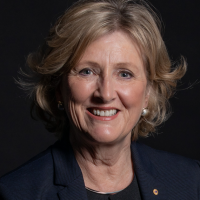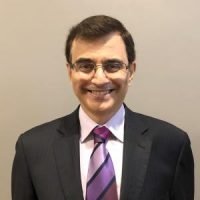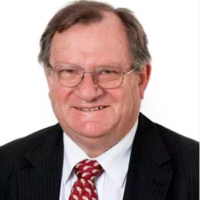Articles / When you can’t sleep, try this


writer
General Practitioner; Author; Past Chairman, RACGP; Past Deputy Chancellor, Monash University
Sleeping well is fundamental to functioning well, as it can significantly interfere with the quality and safety of our interactions and predispose us to mental illness.
Paradoxically, this statement is more likely to predispose you to poor sleep than cure insomnia. The more you worry about the impact of poor sleep, the more you will wake up worrying about it. In contrast, when your brain truly lets go of the importance of sleep, your body will naturally ‘fall’ into deep slumber.
We work at high pace, after hours, and on call. We often need to attend to our administrative work late in the day on a brightly lit computer. We seldom have time to relax, meditate or exercise during the day due to our heavy workloads. When we don’t have time to process experiences during working hours, it is common to wake up ruminating about our interactions with patients and colleagues, clinical decisions and exposure to trauma, suffering and conflict.
Periods of acute insomnia are common and normal under these circumstances. However, if we respond to acute insomnia in negative ways, chronic insomnia can become an unhealthy habit.
While it’s worth trying generic sleep hygiene interventions, do not be discouraged if these strategies do not work. General practice is not a generic job. Psychologist Dr Giselle Withers has developed a specialised online sleep course which has been evaluated in an independent study by Monash University.
She recommends the following strategies, which are included in ‘Every Doctor; healthier doctors=healthier patients’:
1. A brain trick, called paradoxical intention.
To break frustrating repetitive thoughts, try NOT to fall asleep by keeping your eyes open for as long as you can.
2. Sleep hygiene strategies.
These include avoiding caffeine and alcohol and reviewing environmental factors that may disrupt sleep, such as temperature, noise, light, etc.
3. Stimulus control strategies.
This includes avoiding non-sleep activities in bed (particularly reading, thinking about patients and exposure to screens), and getting out of bed if lying awake for more than 20 minutes, returning to bed only when sleepy after listening to a mindfulness recording.
4. Sleep consolidation or bed restriction.
This involves limiting your time in bed to match your current average sleep time to increase ‘sleep drive’, provided you allow a minimum of six hours in bed each night. If sleeping patterns improve after a week, but you still feel sleep deprived, begin adding 30 minutes of extra time in bed and monitor for another four to five days. Continue adding 30 minutes to your time in bed until feelings of sleep deprivation disappear.
5. Relaxation training.
This involves focusing the mind on relaxation techniques including progressive muscle relaxation, visualisation and breathing techniques. It can also reduce the anxiety associated with not sleeping. Reassure yourself you are benefitting from time taken to relax the mind and body, slow your pulse and breathing and lower your blood pressure even if you stay awake all night.
Compared to many of the complex illness and health conditions GPs treat each day, acute or chronic insomnia can be underestimated and its seriousness discounted. Often it is not until the conditions are personally experienced that the complexity is recognised and fully appreciated by GPs.
If these strategies don’t help, please consult an independent treating GP or psychologist for an objective assessment. Please take care and seek support.
This is a slightly edited excerpt from ‘Every Doctor; healthier doctors=healthier patient’ coauthored by Prof. Leanne Rowe AM, Dr Vihangi Abeygunawardana, Prof Michael Kidd AO, published internationally by Taylor and Francis
www.everydoctor.org


New Cervical Cancer Screening Guidelines

Heart Failure – Non-Pharmacological Management

Gluten-Free Diet – A Practical Guide

Heart Failure – Multi-Disciplinary Cardiac Rehabilitation

writer
General Practitioner; Author; Past Chairman, RACGP; Past Deputy Chancellor, Monash University

Strongly support
Somewhat support
Neither support nor oppose
Somewhat oppose
Strongly oppose
Listen to expert interviews.
Click to open in a new tab
Browse the latest articles from Healthed.
You have completed the Educational Activities component of this resource.
Select ‘Confirm & claim CPD‘ to confirm you have engaged with this resource in its entirety and claim your CPD.
You will be taken to explore further CPD learning available to you.